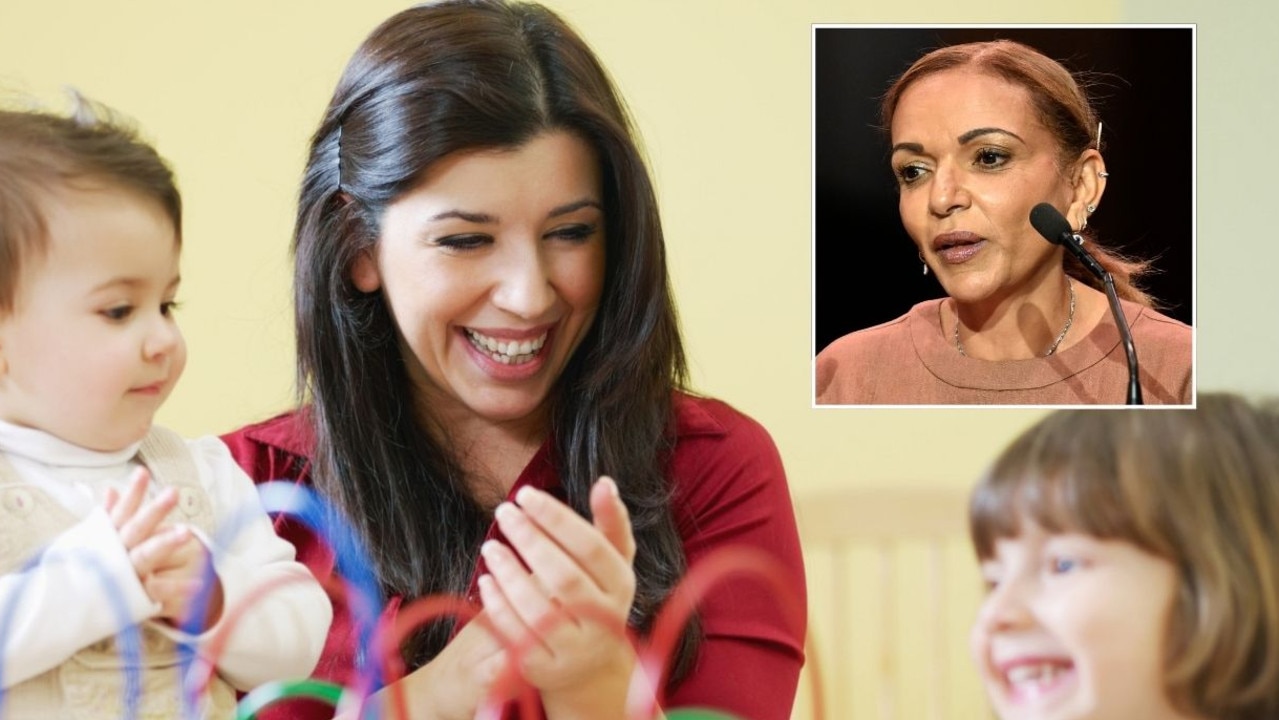Queensland families hit with greatest childcare fee hikes
Queensland families have been slapped with the largest spike in childcare fees in Australia, with a major inquiry finding the driving forces behind the hikes.
Early Education
Don't miss out on the headlines from Early Education. Followed categories will be added to My News.
Queensland families have been slapped with the largest spike in childcare fees in Australia, while shift workers, parents of disabled kids and regional families are the most likely to be cut off from accessing services, a major inquiry has found.
The Australian Competition and Consumer Commission has released its final report after being commissioned by the Federal Government to find greater insight into the driving factors behind increases.
It found Queensland’s change in average daily fee increase rose from as low as less than 2 per cent in September 2020, to nearly 12 per cent in September 2023, in the largest increase nationally.
Parents in Brisbane’s inner city suburbs are now forking out an average daily fee of $144.99.
In the first of its eight recommendations the commission urged the government to “reconsider and restate the key objectives and priorities of its early childhood education and care policies and supporting measures, including the price regulation mechanism”.
While the report acknowledged that the introduction of Child Care Subsidy rates had been positive for parents, it said the current “one size fits all approach” had left many communities under-served.
It identified households with unique needs like shift workers, First Nations communities and linguistically diverse families, parents of disabled kids and parents of children aged 0-2 to be likely to face accessing challenges.
It also showed parents from regional and remote communities and areas of relative socio-economic disadvantage to be worse off.
A shift working parent living in a remote community without family support feared they might be reduced to part-time hours to “make it work”.
“It has been a nightmare contacting so many different childcare centres every month to remain on their waitlist only to be told there is no progress and no vacancy in the foreseeable future,” they said.
“My partner and I are looking at going part-time to make it work and even if we had secured some care, we would still find it hard both being shift workers and having no other family support in regional Australia to have flexibility outside of standard working hours.”

Another of the key recommendations by the inquiry was for the government to consider a market stewardship role to monitor the sector for the number of providers, workforce participation rates and a local providers’ cost, prices, profits and workforce statistics.
In a submission, one provider from outer regional Queensland, said it was unable to offer more childcare places as it was unable to find staff.
The Parenthood chief executive Georgie Dent said the advocacy group welcomed the report but that it was clear that children from disadvantaged backgrounds missed out the most.
“The report confirms, however, that there are huge disparities around the country in terms of accessibility and affordability of early childhood education and care,“ Ms Dent said.
“Unfortunately the findings make clear that it is children from lower socio-economic households, as well as First Nations children, and children living in remote areas, that miss out the most.”
Education Minister Jason Clare said while the government’s recent changes had cut costs for more than one million Australian families, he acknowledged there was a long way to go.
“It also has a number of recommendations about where more work is needed,” Mr Clare said.
The Federal Government said it would consider the report alongside the Productivity Commission inquiry into childcare, which is due to be finalised by June 30.
The commission also recommended the removal or reconfiguring of the current activity test - which determines the number of hours of subsidised childcare a family is entitled to - as it acts as a barrier to disadvantaged children.
“This is the ninth report in two years that has recommended the abolition of the Activity Test, a punitive policy that has failed to incentivise parents to work as it was designed,” Ms Dent said.
“And instead disadvantages children who would benefit the most from having access to quality, inclusive early education and care.”
Minderoo’s Jay Weatherill said by making early childhood education and care more affordable and accessible ensured children have the best possible start in life.
Further, Mr Weatherill said it improved the nation’s productivity by enabling primary carers, predominantly women, to re-enter the workforce.






